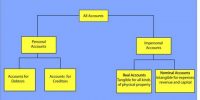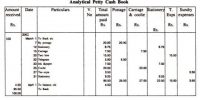The main application of a computer in the accounting system are listed below:
- Speed — data entry onto the computer with its formatted screens and built-in databases of customers and supplier details and stock records can be carried out far more quickly than any manual processing.
- Automatic document production — fast and accurate invoices, credit notes, purchase orders, printing statements and payroll documents are all dons automatically.
- Accuracy — there is less room for errors as only one accounting entry is needed for each transaction rather than two (or three) for a manual system.
- Up–to–date information — the accounting records are automatically updated and so account balances (e.g. customer accounts) will always be up-to-date.
- Availability of information — the data is instantly available and can be made available to different users in different locations at the same time.
- Management information — reports can be produced which will help management monitor and control the business, for example the aged debtors analysis will show which customer accounts are overdue, trial balance, trading and profit and loss account and balance sheet.
- GST/VAT return — the automatic creation of figures for the regular GST/VAT returns.
- Legibility— the onscreen and printed data should always be legible and so will avoid errors caused by poor figures.
- Efficiency — better use is made of resources and time; cash flow should improve through better debt collection and inventory control.
- Staff motivation — the system will require staff to be trained to use new skills, which can make them feel more motivated. Further to this with many `off-the-shelf packages like MYOB the training can be outsourced and thus making a particular staff member less critical of business operations.
- Cost savings — computerized accounting programs reduce staff time doing accounts and reduce audit expenses as records are neat, up-to-date and accurate.
- Reduce frustration — management can be on top of their accounts and thus reduce stress levels associated with what is not known.















